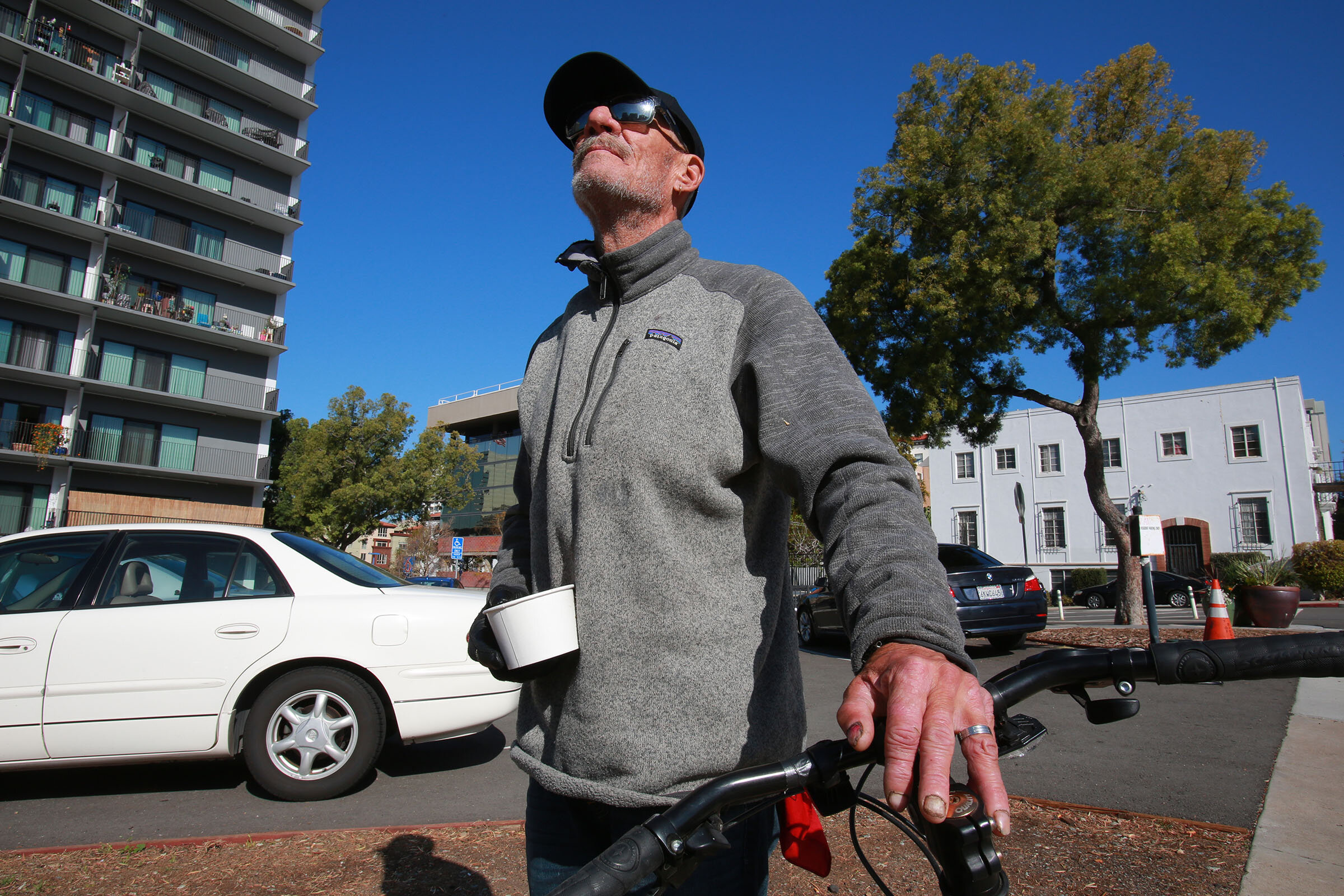Benito
Born in Denver, Colorado, Benito, 59, was one of 11 kids (one mother, five different dads). The oldest brother, a Marine, died in Vietnam. He also has a brother, Joseph, who was in the Navy. So when Benito joined the Army, all branches of the military were represented in his family. There were so many people in the family that on Thanksgiving there were at least 20 nieces and nephews in attendance.
Benito’s parents were pretty strict. He remembers his father beating him with a stick. One time at the dinner table Benito’s mind was wandering, and he said “Oh fuck” out loud about something he’d been thinking about. He saw the fork drop from his father’s hand onto the table. The next thing he saw was the back of his father’s hand. He finished dinner standing in the corner - for the next two weeks. His father remarried to a woman who would send Benito to the $1 triple feature on ‘new movie day’ so she could have some alone time.
In junior high school he saw the ROTC and liked the order and predictability of the program. When he was 14 years old he started seeing everything in his world in terms of composition, art, color. He started drawing with a pencil, mostly doing abstracts.
He was in the Army, the 151st Infantry, from 1979-1983. When on a normal patrol in Iraq, a bullet sent a chip of concrete flying off a nearby wall. The concrete chip broke his collarbone. That injury brought him home. He had been communicating with a woman back home that he met on a bus trip from Seattle to Oak Harbor, Washington. They got married on the plane en route to Hawaii. But the marriage only lasted a year and a half. “Seemed like whatever I did to try and better myself, it wasn’t good enough form her,” he said, adding that his wife beat him up a lot. She hated being a military wife. Before they split up however, they had a set of twins and named them Heather Jennifer and Jennifer Heather.
In Seattle he worked as a janitor at the Bon Marche, but it was too cold and wet in Seattle.
So he drove his truck to Sacramento, where he found work landscaping for a man who treated him like family. The landscaper also was a harpist with the local symphony. But Benito still wanted a warmer climate. So he picked up some work in Kingman, Arizona, then moved again to Escondido, where he found himself surrounded by an active drug scene. It was too much like warfare, he said, so he kept moving and ended up in San Diego.
Then he met Debby. They got married, had a baby, and shared a heroin addiction. He worked at the dry docks doing boat repair. Everything was fine until he came home and found Debby OD-ed in the bath tub. He was a widower at age 30, in1991. Baby Leah was six months old when Debby died, and he was ill-prepared to care for her. So, he gave the baby to Deb’s mom to care for. He hasn’t seen Leah since she was in the fifth grade.
Then someone stole his truck and his tools. He fell deeper into drugs. He got a welding job for $60/hour plus overtime. It was great work, mostly piece work. He was living at the Southern, an SRO downtown. He got back into drawing. Unfortunately he began losing his sight as a result of too much exposure to the light from a welding arc — not his own but from working in too close proximity with others and catching that peripheral light.
Since that vision problem forced him to give up a job he loved and a good salary, “I turned into a dirty rotten stinking dealer; a hit man.” Then he saw himself in someone else. It forced him to quit the drugs and return to his art. His pen strokes got deeper, his subjects got darker.
Ever the Romeo, he met Karen; they lived together eight years. “She made me see different melodies, tones, changed my whole life, my perspective on everything,” Benito said. Currently, he sleeps in a tent near downtown, on a bridge over the freeway. He doesn’t get any form of assistance. “You got to be a fruit, a nut, or a flake to get a check here; or retired or be a senior citizen,” he said. He doesn’t do hard drugs any more, he only smokes weed. He doesn’t drink alcohol, either, he said. “I can do something good. I wrote two children’s books (and illustrated them). They are still in review. My whole childhood years that was in my mind.” He has lots of ideas he thinks he should patent.
About homelessness, Despite being energetic, friendly, talkative, Benito said, “I’m unsure of myself some times. I’ve got aches and pains. People don’t take the time to get to know you on a level you can be interpreted and trusted.” All he really wants from people, he said, is “don’t lie to me.”
Meanwhile, recent rains in San Diego destroyed his art supplies and drawings. So Benito is starting all over again.

